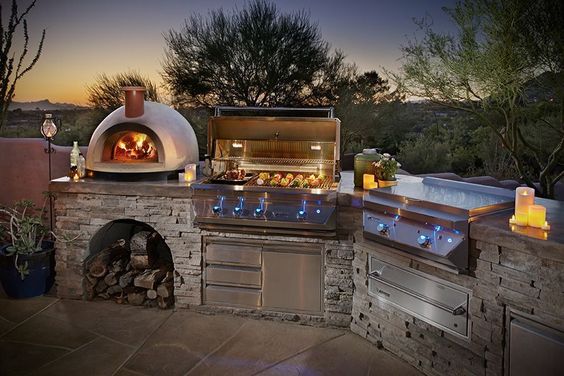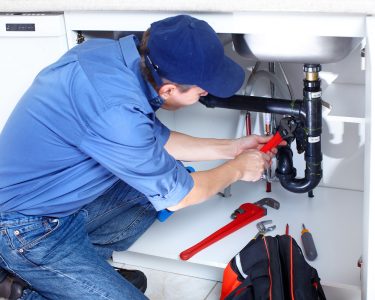Having a pool is an awesome way to enjoy the summer in places like Westport, Connecticut, but maintaining one can quickly get expensive, difficult, and time consuming. It’s a necessary evil to keep the pool in working condition throughout the season, so it’s safe and enjoyable for you and your guests. Fortunately, there are many tips and tricks you can use to make maintaining your pool easier and less time consuming. This guide will give you seven important tips for pool maintenance in Westport, CT that can keep your pool ready to go all summer long.
Skim and Clean Your Pool Regularly
The easiest and most important way to maintain your pool is to skim it every day, getting rid of leaves, insects, and other debris that floats on the surface. When you get rid of this stuff, you prevent the buildup of dirt, which can clog your filter and cause algae growth if you don’t deal with it. Many Westport homes have a lot of trees, and their leaves will end up in your pool, so frequent, consistent skimming is the most important element of pool maintenance for Westport, CT homeowners.
You can make the process easier on yourself by using a leaf net or pool vacuum to make the skimming process less time consuming. These tools also play a big role in keeping the water clear and inviting.
Test and Balance Water Chemistry
Keeping your pool safe and clean requires balancing the water’s chemistry. You should be testing your pool’s pH and chlorine levels at least twice a week. Ideally, the pH level should be between 7.2 and 7.8, while the chlorine level should stay between 1-2 parts per million (ppm). When the chemicals are balanced and these levels are maintained, algae won’t grow, and your pool equipment won’t corrode.
If the water is out of balance, it can irritate the skin and eyes of any swimmers. As a result, you should keep a pool testing kit around so it’s easy and convenient to test the water. There are many different types that can be found at any pool supply store, or wherever pool related items are sold.
Clean the Pool Filter and Pump System
The filter and pump circulate your pool’s water and keep it clean. Your system works pretty hard during the summer, especially as people use the pool and debris accumulates. Therefore, you should clean the filter on a regular basis, ideally once a week, so it doesn’t get clogged.
If it’s not cleaned regularly, water flow will become weaker and that puts a lot of strain on the pump. When the pump is under a lot of stress, there’s a higher risk of damage, and repairing it will be quite expensive, especially if there are modern, advanced plumbing technologies involved. As a result, maintaining the filter and pump system plays a huge role in Westport pool care.
Brush the Pool Walls and Vacuum Weekly
You’ll keep the water clear and algae from growing by brushing and vacuuming the pool walls at least once a week. Algae is more likely to grow in the summer because there’s much more sunlight and usage of your pool, so you need to brush regularly. The brush you use should be suitable for your pool’s surface. For example, if you have a vinyl pool, avoid metal brushes that will poke holes in the lining. Scrub the walls, steps, and floor of the pool to get rid of dirt and algae.
Vacuuming is just as important. Even with regular skimming, debris can accumulate at the bottom of the pool, leading to unsightly dirt and algae growth. Weekly vacuuming is a key part of pool maintenance in Westport CT that keeps your pool beautiful and functional.
Shock the Pool After Heavy Use
After pool parties, heavy usage, or rainstorms, it’s important to shock your pool. Shocking involves adding a large dose of chlorine to kill bacteria and clear up any cloudiness. Pool parties with a lot of people in the pool and heavy rain introduce a lot of bacteria and particles into the water that can impact its chemistry, which you can address by shocking the pool. Even if you haven’t had any pool parties or heavy rainstorms recently, shocking about once a week is still a good idea.
Regularly Inspect Pool Equipment
You don’t need to go overboard, but you should check the pool equipment, like as the pump, heater, and filter, for signs of wear and tear. This way, you can find and fix small issues before they escalate into much larger, much more expensive repairs. Check the system for leaks, performance issues, and unusual noises.
Scheduling a professional pool inspection at the beginning of the season is a great idea for Westport homeowners, so they can make sure their equipment is in good condition. Catching issues early with these inspections will prevent some serious problems later on.
Maintain a Safe Poolside Environment
Another part of pool maintenance Westport CT is keeping everyone safe. You can do this by keeping safety equipment, like flotation devices and a first-aid kit nearby in case there’s an emergency. Secure your gates and pool covers to prevent accidents, especially if there’s kids around. Any toys should be removed from the area around the pool when they’re not in use so people don’t trip on them, as well.
Your regular maintenance should always be complemented by a safe environment. In addition to keeping your water clean and equipment working, your pool should be safe for all swimmers.
Getting the Most Out of Your Westport Pool Care Summer Checklist
Following these pool cleaning tips for Westport homeowners will keep your pool clean, safe, and enjoyable all summer long. Consistent maintenance also extends the life of your pool equipment and reduces the need for costly repairs. From skimming daily to shocking after heavy use, each of these steps plays a huge role in proper pool maintenance Westport CT.
For an even more thorough approach, think about working with some pool care professionals to stay on top of regular maintenance tasks. By doing so, you’ll enjoy a sparkling pool all season long, so you can have tons of fun and relaxation with family and friends.





